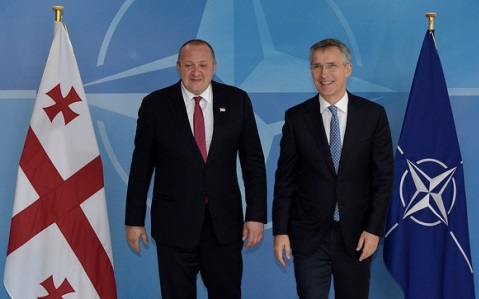Atlantic Council: “NATO Summit Special Series – Georgia”


Georgia has high expectations of this year’s NATO Summit in Warsaw, Poland. The country has reached all technical requirements asked by NATO that precedes membership, the Alliance has voiced strong support for Georgia yet the country remains in limbo about its North Atlantic future.
Georgia is wedged precariously between a NATO ambivalent about expansion and a giant neighbour bent on including it in its sphere of influence, writes Laura Linderman, a Research Fellow with the Dinu Patriciu Centre at the Atlantic Council.
At this year’s NATO Summit Georgia hopes to receive a Membership Action Plan (MAP) – a direct roadmap for eventual integration with NATO – but it has also modified its expectations to more cooperation formats with NATO.
NATO is pledging to offer greater support for Georgia and including the nation in more NATO activities, potentially in a ‘28+2’ cooperation in the Black Sea, yet the Alliance has not promised Georgia NATO membership.
Why, asks Linderman.
There are two substantive reasons: its location and its frozen conflicts. A quarter of its territory is occupied by Russia, and the US and Europe are afraid of provoking a revanchist Russia by extending NATO borders. The US Ambassador to NATO Douglas Lute recently said that Russia and the "strategic environment” it created has "put a brake on NATO expansion” for the foreseeable future. Georgian Defense Minister Tinatin Khidasheli wants the country to be judged at the Warsaw "on its own merits” – no Russian approval needed."
Linderman’s article goes on to describes the current situation in the region, the challenges along the ABL between Georgia and it’s two occupied territories and Georgia’s efforts to restore pragmatic relations with its giant neighbour.
Currently, with no promises from NATO about expansion, Georgian leadership fears being relegated to the gray zone between Russia and Europe, where Moscow can exert its will without regard to Georgian preferences, says Linderman.
Read the full article here: www.atlanticcouncil.org
 Tweet
Tweet  Share
Share